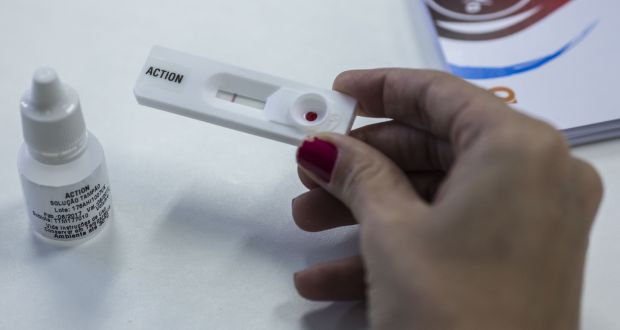
As Namibia moves closer toward reaching epidemic control of the HIV epidemic, the MoHSS and its partners continue to seek new client-friendly methods to reach people who do not want to, or feel that they cannot, visit public health facilities – often for fear of stigmatization.
Addressing the community members who were present, Ambassador Johnson said, “Namibia has made great progress, but there should be no complacency. Closing the testing gap and diagnosing 95% of all people with HIV by 2020 is critical to controlling the epidemic in Namibia.”
PEPFAR, through its implementing agencies USAID and the Centtre for Disease Control and Prevention (CDC), is supporting the MoHSS in these efforts. The updated national guidelines on HIV testing services include the use of HIV self-test kits, and the MoHSS is currently considering how best to use this method to reach the people who are most in need and most likely to miss out from routine traditional HIV testing services. The use of self-test kits is simple, convenient and does not require a needle prick for blood.
The campaign visited by U.S. Ambassador Lisa Johnson forms part of USAID’s Strengthening HIV Prevention for Key Populations (KP) in Namibia Project valued at US$5 million. It is implemented by the Society for Family Health (SFH) in seven health districts.
One of the programme’s priorities is to ensure an environment that provides priority and key populations convenient, non-discriminatory access to healthcare, and to prevent HIV infection.
To date, over 5,560 self-test kits have been used by individuals from priority and key populations through PEPFAR’s support countrywide, of which 760 were used in the Zambezi Region.
wordpress theme by initheme.com

